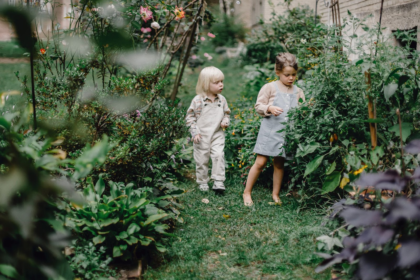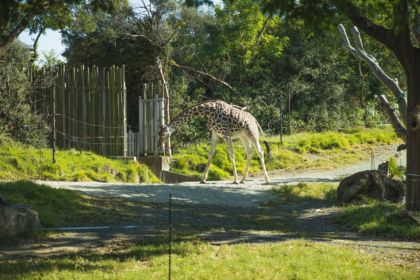Guest Author: Elizabeth Jones-Smith, 6XD Media – thesixthdegree.media

Outdoor exploration is a key part of any happy and healthy childhood. Spending time in nature gives children the opportunity to let their imaginations run wild, fueling their creativity whilst also helping them to develop a healthy body and mind.
But for neurodiverse children, interacting with the great outdoors can be more of a challenge, with potentially more barriers to navigate. Creating a safe and enjoyable outdoor experience for children with neurodiverse traits can be challenging, but it’s far from impossible. Let’s explore how you can encourage safe outdoor play.
Prioritise safety
Whether children are exploring on their own or under the supervision of an adult, safety must always come first. Children are naturally inquisitive and are sometimes unaware of the boundaries of where they can and can’t go, or what they can and can’t engage with. In particular, children living with ADHD will typically find it difficult to follow instructions or focus on a task they’ve been given. But it’s believed that outdoor experiences can actually improve symptoms of ADHD, so it’s important you take the time to promote outdoor play, and find activities they enjoy.
Depending on your child, start by allowing them to explore a small enclosed area and gradually introduce new elements or activities as they become comfortable. To help reduce the risk of harm, make sure you explain the dangers of certain play elements beforehand and point out any potential hazards in the environment that may put your child at risk. It’s also important to stay closeby and be prepared to intervene if necessary. Having you nearby can also provide extra support should your child feel overwhelmed or confused in any way.
Find activities they enjoy
Encouraging children to spend more time outdoors often requires a great amount of trial and error. Exposing them to new sights, sounds and smells can all lead to feelings of discomfort, so it’s important to take the time to find things they really value doing. For many neurodiverse children, particularly those on the autistic spectrum, it can be difficult for them to create their own games using their imagination. Research has found that children with autism often find imaginative play difficult, and may benefit more from having some structure to their playtime.
While every child’s preferences will be different, there are a few recommended activities that children of all ages can engage in and enjoy:

https://www.pexels.com/photo/giraffe-walking-in-sanctuary-and-pinching-lush-grass-5745292/
- Head to your local zoo or national park. Places dedicated to sustaining the beauty of nature present many wonderful opportunities for children to learn more about the importance of the natural environment. Encourage them to ask lots of questions and you could find they spark a love of animals and nature that stays with them as they grow.
- Go on a gentle bushwalk. Bushwalks can be hard work, and children can soon lose interest if they aren’t made exciting. Make sure you have all the necessary safety gear before heading out on a walk, and suggest things that they can look for while on your adventure.
- Go nature spotting. You don’t have to travel far to view nature in all its beauty – an afternoon spent in the garden can yield many positive results. Create a checklist of creatures you know regularly like to visit your garden, and see how many they can spot.
- Get crafty. Nature provides endless opportunities for children to get a little creative. Whether you’re using fallen dried fruits or a splash of mud, think of ways you can use nature as a paintbrush, and encourage your little ones to explore their inner artist.
With some thoughtful planning and preparation, neurodiverse children can find joy in playing outdoors while still being kept safe.
